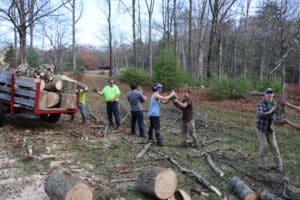Camper Behavioral Correction Guideline
Overview:
It is the goal of Camp Deerpark to provide summer staff with tools, ideas, and a structured system for guiding campers in positive behavior. Because the camp setting is sometimes physically and emotionally draining it is inevitable that camper (and sometimes staff) behavior will at times be inappropriate. As Camp Deerpark staff it is our job to love each camper with the love of Christ in spite of their behavior. It is our job to be sensitive to each child’s emotional, physical, and spiritual needs as we seek to avoid behavioral problems before they happen. The following tools and strategies will simply help us in the process of loving children. True love for children only comes through the grace of God as we allow God to fill us with His Spirit.
Guiding Principles:
- Proactive approaches should be used to reduce the need for reactive discipline.
- Intervention should happen early to avoid escalation
- Interventions should never leave the camper feeling worthless, degraded, or estranged from the counselor.
- Correction should be done privately whenever possible
- Corporal (physical) punishment of any kind is unacceptable
- Interventions should lead the camper to positive behavior
Nine habits of a highly effective counselor
1. Know that Christ loves you, love others
It seems really basic, but keep the knowledge of Christ’s love for you fresh in your mind. You have screwed up in life, hurt people, broken relationships, made some really bad choices. Christ doesn’t let that stand in the way. He loves you, a lot! He died for you. Keep this in mind as you try to find the strength to love difficult campers.
2. Never Yell
“When you yell, you lose” The love of Christ is not communicated with a raised voice. A raised voice communicates anger, frustration, contempt, disrespect, and desperation. It also creates a relational wall between the counselor and the camper. Communicate in a way that shows grace, respect for the camper, understanding, and a firm seriousness.
3. View behavior in terms of needs.
Challenging behavior sends the message of needs not being met. The behavior could mean, “I’m lonely,” “I’m bored,” “I have no power,” “I don’t feel safe,” “I don’t feel valued,” “I have physical pain,” or indicate other needs. A single behavior, too, can reflect several needs. Behaviors can also reflect emotional damage the child might have experienced because of needs that were not met at a younger age.
4. Work with the camper, not against the camper.
It is not you against them. It is us against misbehavior. Ask campers how you can help and support them. Get their input into how to handle their misbehavior. Ask them for ideas. Give campers ideas on how to handle their emotions prior to the emotions arising. This will improve the person’s whole life-relationships, camp participation, increased choices, skill development, and contributions to others.
5. Don’t assume.
Diagnostic labels and past performance often cause people to underestimate another’s potential. Concentrate on the person’s strengths and providing adequate support rather than concentrating on deficiencies associated with the diagnostic label. Speak to the person even if you’re not sure whether the person understands. Never speak about the person with a disability as if that person wasn’t present. It isn’t polite, nor is it supportive.
6. Relationships make all the difference.
Many children with emotional differences live in extraordinary isolation. Some depend entirely on their family or make poor social relationships. Take the time to develop relationships with your campers and especially those that are challenging.
7. Help the person to develop a positive identity.
A person with challenging behavior commonly gets identified as a “problem,” which carries a negative message for the person and those around him or her. Build a positive identity by helping the person find a way to make a contribution and better support those in his or her life. Make sure that the person’s strengths and capabilities don’t get forgotten when reducing or eliminating challenging behavior.
8. Give choices.
If the person uses challenging behavior to express needs, give the person choices and allow the person to make choices throughout the day. Say “I know you are upset. What will help you calm down? A walk? A different activity?” rather than “Do it my way, or else.” Choice does not mean free rein. Set limits with the input of the person with a disability. Every relationship has limits. 9. Help the person to have more fun.
Fun is a powerful cure for problem behaviors. Is the person with the having the same amount of fun as other people you know? If not, look for things the person enjoys doing. Make fun a goal.
Related Entries
Share:
Come and Pray Lunch & Retreat
Come and PrayPrayer Day with Lunch March 14, 9am-3pm~$30~ Overnight Prayer RetreatMarch 13-14includes March 14 Lunch~$120~ Come seek the Lord’s face with your faith family from all over the Tristate region for a relaxing time of prayer and discussion. We know God is doing amazing things — and he will continue to do more as…
Time to Pray
As followers of Jesus, he is our example in everything. When Camp says in our mission statement that we are “a community of Christ” – this is what we’re saying: we’re a group of people dedicated to the purpose of following and being like Jesus. So the question is, how do we follow Jesus as…
A Place of Prayer
Prayer — especially “vertical prayer” for specific God-revealed mission set apart from the concerns of our life and ministry — is a major theme for Camp in 2026. Maybe you read about this in the Winter Newsletter article “Time to Pray“? We want to extend the invitation to the entire Camp community and beyond —…
Living Abundantly Retreat
Jesus promised his followers an abundant life. Is that just an abstract idea to distract us from earthly misery, or is there real power in Christ to live a full and rich life in the here and now? Young adults are navigating a challenging landscape as they start “adulting” and building a life, so we’ll…
Forgiving Debts: 2025 Woodcutting Season
When Jesus taught his disciples to pray (Mt 6:9-15), he described two big realities where “thy Kingdom Come, thy will be done on Earth as it is in Heaven” are realized in the human world: First, he said “give us this day our daily bread”, acknowledging that God’s provision for human need is a central…
“How Do I Donate?”
Recently, a thirteen-year-old guest at Camp asked Operations Director Kevin Smith, “how do I donate?” Kevin was honestly a little surprised, but was happy to see this young member – who was on retreat with one of our owning churches — taking some initiative. Kevin directed him to the website Donate page, and the young…
The Discipleship Down-Low
Defining Discipleship 18 And Jesus came and said to them, “All authority in heaven and on earth has been given to me. 19 Go therefore and make disciples of all nations, baptizing them in the name of the Father and of the Son and of the Holy Spirit, 20 teaching them to observe all that I have commanded…
The Virtuous Wife
This past weekend, Camp hosted three women’s retreats at Camp. Though the retreat groups were very diverse in background – one was from an urban church plant in Philadelphia, one was from a Garifuna Mennonite church in Brooklyn (an Afro-Caribbean Culture), and one was from a multi-ethnic faith community reaching out in North Jersey. Though…
A Life of Service
I believe the most important thing to God is not our personality, knowledge, or talents, but our availability. How willing and ready are we to respond when He calls, and how ready are we to do what He says? What use to the Lord are people who could do what he wants with excellence and…
Building Belonging
At our February NYC LMC District meeting, we’re discussing the Belonging phase of The Journey Map. In this first phase on the map, individuals and groups on a spiritual journey begin the process of connecting to each other and evaluating the place they may have in each other’s lives. Have you ever been an outsider…



